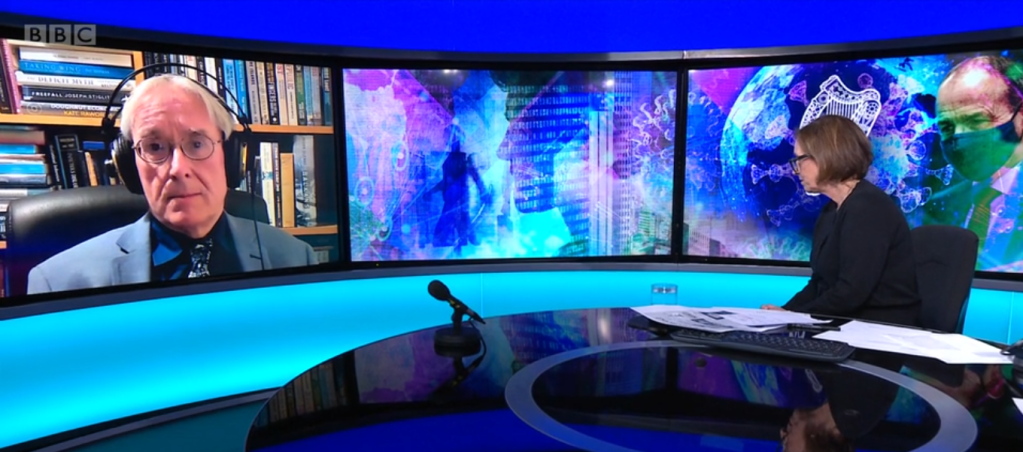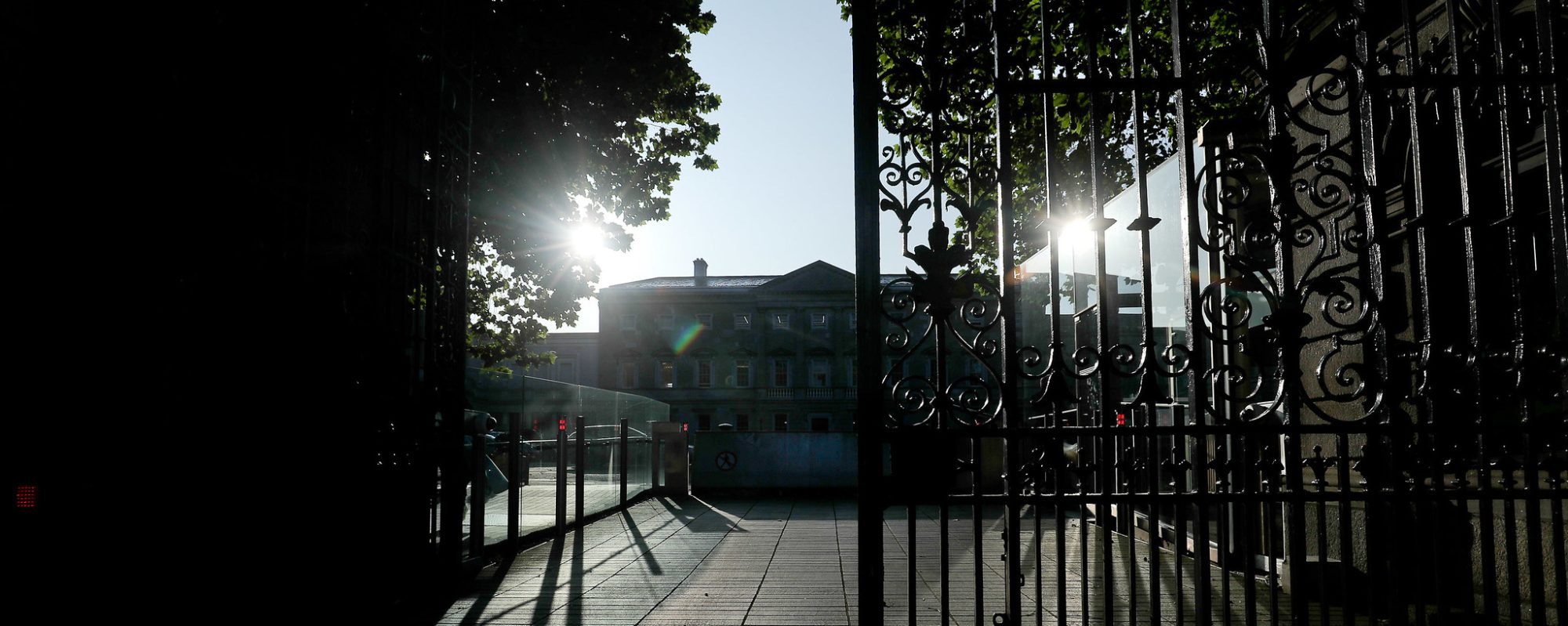This week’s column first appeared on Broadsheet on December 6th and looks at two strained sets of relationships. The first is that between ministers and NPHET and the second is the one between the government and the hospitality industry.
When it comes to the relationship between the Cabinet and NPHET, a mutual preparedness to blur the delineation between roles of decision-maker and decision implementer, is coming back to bite… both .
Meanwhile, the government’s willingness to propose additional restrictions for the hospitality sector can be seen as an attempt to distract from the same government’s lethargy on ICU beds, ventilation and antigen testing.

Many years ago I was asked to help in the re-structuring and re-invigoration of a voluntary organisation. I was one of a group of outsiders. Each tasked with reviewing key aspects of the organisation’s work, operations, and structures.
Each of us brought a different skillset to the mission, HR, communications, fund raising and organisation. Towards the end of the assignment they brought us together to compare notes.
Governance had been a major issue in the organisation with the odd board member accused of crossing the line and getting involved in the day-to-day operations. So, we were all interested to see and hear what the person looking at organisation and governance would recommend.
We were expecting him to come with a set of complex system of checks and balances. He didn’t. His analysis was remarkably straight forward. He succinctly delineated the roles and responsibilities of elected board of directors versus those of the full-time management, with a simple phrase: Management proposes, board decides. Management implements, board oversees.
It’s a comprehensive statement of the fundamentals of good governance.
The same key principle applies when it comes to government, but with more significant consequences. One of those, the delineation paradox, was neatly summarised in the opening line of a 2007 OECD paper entitled The Delineation of Responsibilities Between Ministers and Senior Civil Servants. It says:
“democratic regimes find themselves having to balance two values that can be in some tension: (1) fair and non-politically partisan public service delivery and, subject to the law, (2) the responsiveness of public servants to the policies of the current executive.”
So, just as democratic accountability demands that an incoming political administration is able to change the direction of government policy – i.e. Board decides, public servants need protection against being misused for partisan purposes – management implements.
Avoiding any crossover between this separation / delineation is critical. While some stepping across the boundaries may suit the passing whims, or lethargy of a given Minister or Secretary General of the day… it is damaging in the long term. Today’s operational convenience can all too easily become tomorrow’s policy impediment.
Or, to put it another way using one of my late father’s favourite sayings, you can’t sit on the swing and pushing. But all too often that is what we see and hear from NPHET.
This is not a criticism of their latest set of recommendations. I have neither the expertise nor to knowledge to meaningfully critique them, but I can comment on how they convey them. And on how it all too often seems that ministers get to hear what may be coming from NPHET via the media.
NPHET is there to advise. It is there to propose – management proposes, but it is not there to decide on them – either by casting the deciding vote or by encouraging public pressure on ministers to act. That is the prerogative of politically accountable element of government.
This is not to let ministers off the hook. They are the ones who have most to lose by any blurring of the delineation boundaries, so they have both a responsibility and a duty to ensure their strict observation. Telling the Sunday papers that you plan to put manners on NPHET is both a dollar short and day late.
Having NPHET as a handy scapegoat for tough decisions is political cowardice. Not alone that. It is politically naïve to imagine you can scapegoat any organisation, be it private or public, and they will just meekly and quietly absorb it.
This is too small a country with too politically savvy a polity for that to happen.
Blurring the lines hurts both – a point that was well illustrated in Richard Chambers’ book on the government response to the Covid crisis A State of Emergency.
Of the very many interesting insights and observations in that book, the one that resonated most with me comes from October 2020. Explaining the decision not to directly contact the Taoiseach to forewarn him of the lock down recommendation, Dr Holohan’s colleagues at NPHET told the author that Holohan had said that “If Martin Fraser found out I was ringing the Taoiseach just off my own bat… they already think we have ideas above our station,”
This suggests a worrying level of dysfunction at the top of government where key actors are more worried about the Secretary General at the Department of the Taoiseach resenting someone going over his head to the Taoiseach.
I have no idea whether the additional restrictive measures announced by An Taoiseach is the government acting with due caution or an excess of caution. But I have major qualms with the perceived vilification of the hospitality sector.
Maybe the prevailing political view is that people are content to see the sector continue to take it? There may be some validity to view with yesterday’s Irish Mail on Sunday/Ireland Thinks poll finding that 65% of people support the additional restrictions. But politicians should not confuse a public desire to see government taking firm action, with them accepting just any old action.
There may well be overwhelming and convincing evidence for having only six people at a table, or for a family of eight having to decide which ones to leave at home because they cannot book two tables of four… but I doubt it is as convincing as the evidence that we need more ICU beds, or that we need high efficiency particulate air filtration, i.e. hepa filter systems in indoor public spaces including classrooms, restaurants and venues?
Elected representatives across the Dáil should heed the other finding in the Irish Mail on Sunday poll, the one showing that 56% of 18–24-year-olds disagree with the latest measures.
Sometimes you require an outside perspective to help you to get a better grasp on what’s happening here. Which is why I strongly recommend watching last Friday’s BBC Newsnight. It contained a segment on Taoiseach Micheál Martin’s announcement that asked why the UK and Ireland were taking such different approaches?
This included a live interview with DCU Professor, Anthony Staines (see part of it here). Staines said he broadly supported the latest Irish government actions, saying that it “..has had the courage to say we need to step backwards.”
He rejected outright the notion that the scientists in the UK and Ireland are far apart in their assessments, saying that it was the political response to the science that was far apart. He told Newsnight’s Kirsty Wark that “the price paid in your country has been high even by European standards. Most of Europe did not cover themselves in glory but Britain stands out in all the wrong ways.”
But while Staines may back the latest moves by Irish government, his assessment of its overall approach was less than glowing. He said Ireland was in the mid-range of European countries when it came to the effectiveness of its response and compared unfavourably with countries like Finland and Norway.
Most significantly, in terms of the latest actions by the Irish government, Staines said
The message from the science is clear. You do all the things you can to control this virus. And lockdowns and restrictions are the very last thing you do.
So, before you do those, you wear masks, you use air filtration. Covid passports may be useful. Antigen testing. You ramp up public health, so we identify cases. We trace the cases; we trace their contacts. We support them on how to isolate. As soon as the vaccine becomes available you push it out as quickly as possible. [my emphasis]
While the Irish government scores high marks on some of these points, it scores very poorly on others. The situation in hospital ICUs is pitiful. The average number of ICU beds per 100,000 of the population across the EU is 11.5. In Ireland it is just under 6.5.
In 2018, the Department of Health’s capacity review planned for a total of 330 ICU beds by the end of 2021. That not especially ambitious target was set pre-covid. If anything they should have increased the target when the pandemic hit. They didn’t.
That pre-covid target will be missed. Two weeks ago the Taoiseach told the Dáil that “we are at close to 300 or 301 ICU beds now”, and that “the intention now is to go, at a minimum, to 340 by the end of 2022”.
But fear not – we will not miss the target to close nightclubs, halve theatre capacity, or keep pub and restaurant tables to a maximum of six people.
We have been slow and confused on Antigen testing – this Twitter thread is a useful primer on the part Antigen tests can play in tackling covid spread, even though they are not as accurate a diagnostic tool as PCR testing. Yesterday the Scottish government’s national clinical director was advising Scots to “do LFD (lateral flow device/Antigen) tests on every occasion before socialising with others.”
To use Anthony Staines phrase, it is good to see NPHET step backwards a little on its hostility to antigen testing. It had to do something similar on mask wearing in mid-2020.
But this brings us back to the problem. There should not be the scope or space for idle chatter on what NPHET thinks about A; how The Tánaiste feels about B; or how the Taoiseach views C or D. As we discovered when we did a survey on attitudes to emergency preparedness back in the 2005/06, the public want to know that there is a plan.
There should be one clear government approach and one clear government message. If even there was a time for P.J Mara’s uno duce, una voce, it is now. Just as it is time, to paraphrase another great Mara saying, for NPHET, Martin, Varadkar, Harris, Donnelly et al to stop the “nibbling at each other’s bums.”

